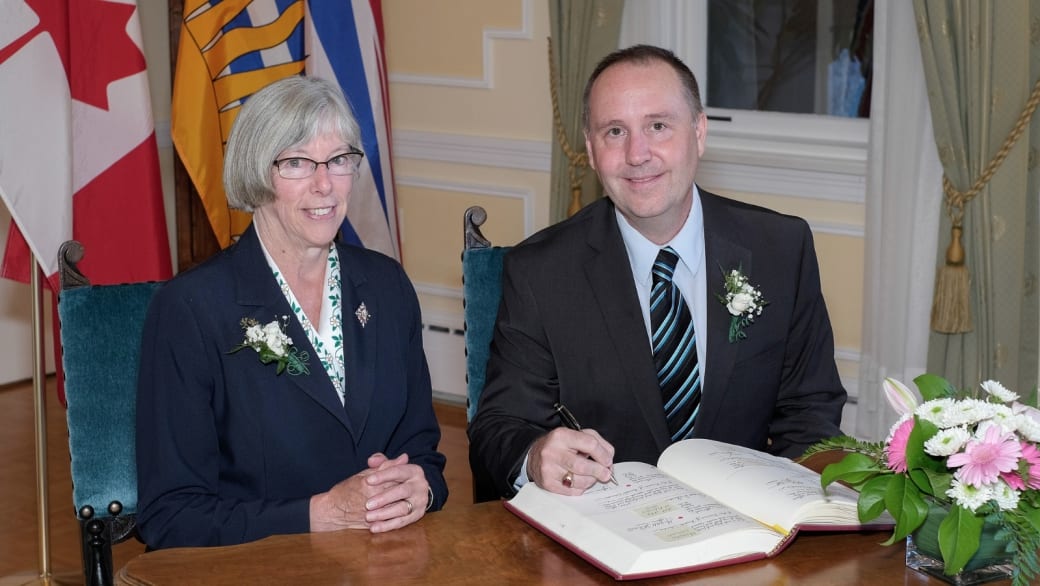A new report echoes what LGBT educators say they’ve been seeking for years: province-wide help for queer youth in BC schools.
The report, released Jan 26, 2016, comes from the BC legislature’s Standing Committee on Children and Youth. It calls on the provincial government to require all school districts to “support sexual and gender minority youth in schools through general and targeted programs.”
The recommendation is one of many aimed at bettering mental health programs for children and youth in BC. It echoes findings from BC’s Safe Schools Task Force more than a decade ago, says James Chamberlain, who’s been pushing for gay-friendly schools since the 1990s.
While the task force made no specific recommendations to deal with homophobia, it reported that homophobia was a problem.
Premier Christy Clark was minister of education at the time. “If I become premier, one of the very clear directives I am going give to the education minister is I want you to deal with bullying in schools as a top priority,” Clark later told Daily Xtra in 2011 during her Liberal Party leadership campaign. She identified homophobic bullying as the number one form of bullying that needed to be addressed.
But, Chamberlain says, “the Ministry of Education has never taken leadership on LGBT issues.”
Now, he’s hopeful.
“This report is totally about the systemic issues and the vulnerability of LGBTQ youth,” he says.
Until now, change has only come district by district. Of BC’s 60 public school districts, 41 have passed some form of policy to address homophobia in their schools, Chamberlain says. Nearly a third of the districts have yet to take action.
The Committee on Children and Youth would like to see a province-wide approach by the government requiring all districts to address homophobia and support queer youth.
“The committee urges that its unanimous recommendations for concrete actions to improve child and youth mental health services be undertaken by government as a matter of high priority,” the report says.
Ryan Clayton says he wants to hug standing committee chair MLA Jane Thornthwaite.
“Wow,” says Clayton, who has been leading anti-homophobia workshops in BC interior schools since he was 19.
“The recommendations are fantastic,” says Clayton, now 28. “The LGBTQ stuff is consistent with what we’ve been asking for. I’m excited.”
Five years ago, Clayton co-founded the Purple Letter campaign, urging British Columbians to send letters to BC’s premier and education minister to demand a province-wide policy on sexual orientation and gender identity in schools.
While he’s often been critical of Premier Christy Clark in the past, Clayton implores her to implement the committee’s recommendations now.
Specifically, he’d like to see some legislation flow from the recommendations.
“I will commend her if she implements them,” he says. “And I don’t commend her very often.”
Of the 633,428 students registered in BC schools in 2014/2015, professor Kristopher Wells estimates 50,674 would identify as gay, lesbian, bisexual, trans, or questioning their sexuality.
The report calls that number substantial, noting an estimated 27 percent of LGBTQ students are threatened with violence at school, compared to only 13 percent of heterosexual students.
“It is perhaps not surprising that LGBTQ youth are more likely to experience mental illness than heterosexual youth,” the report says.
“Schools need to support their sexual and gender minority students through initiatives such as stand alone sexual identity and gender identity policies in school and support for gay-straight alliances,” the report says.
Chamberlain appreciates the new recommendations but is sad to think “a whole generation of students” has passed through the BC education system since the Safe Schools Task Force report in 2003 — without support from the Ministry of Education.
“They should take the leadership on this but they haven’t,” he says.
BC’s education minister, Mike Bernier, sat on the committee until last September. In a statement to Daily Xtra on Jan 28, the education ministry says it will review the report, in conjunction with the Ministry of Children and Family Development and Ministry of Health.
“It’s too early to comment in detail on the recommendations or any possible future policy changes,” the statement says.
The committee’s report comes on the heels of a national report calling for legislation to protect queer youth in schools.
That study of teachers’ experiences in Canadian K-12 schools shows British Columbia continues to lag behind other provinces in LGBT-inclusive education, observers say.

 Why you can trust Xtra
Why you can trust Xtra


